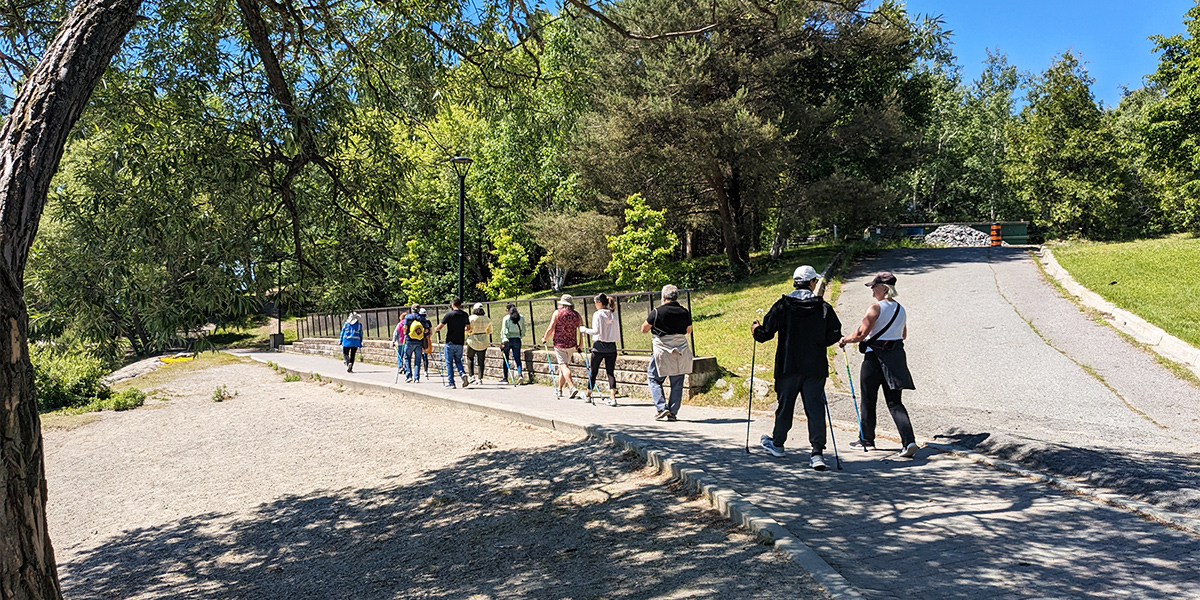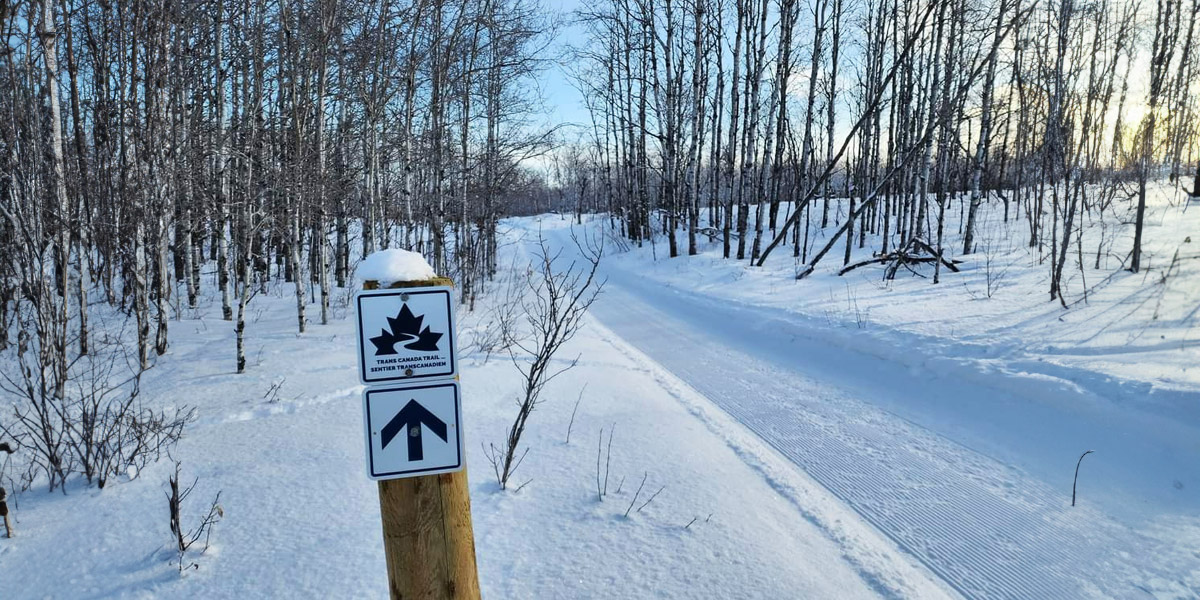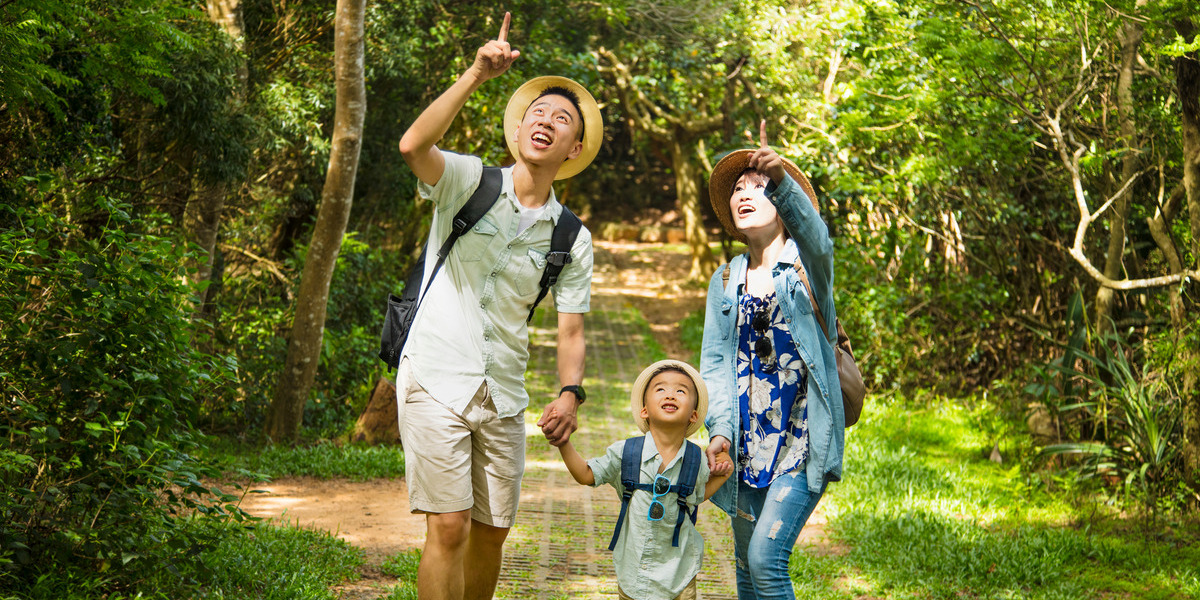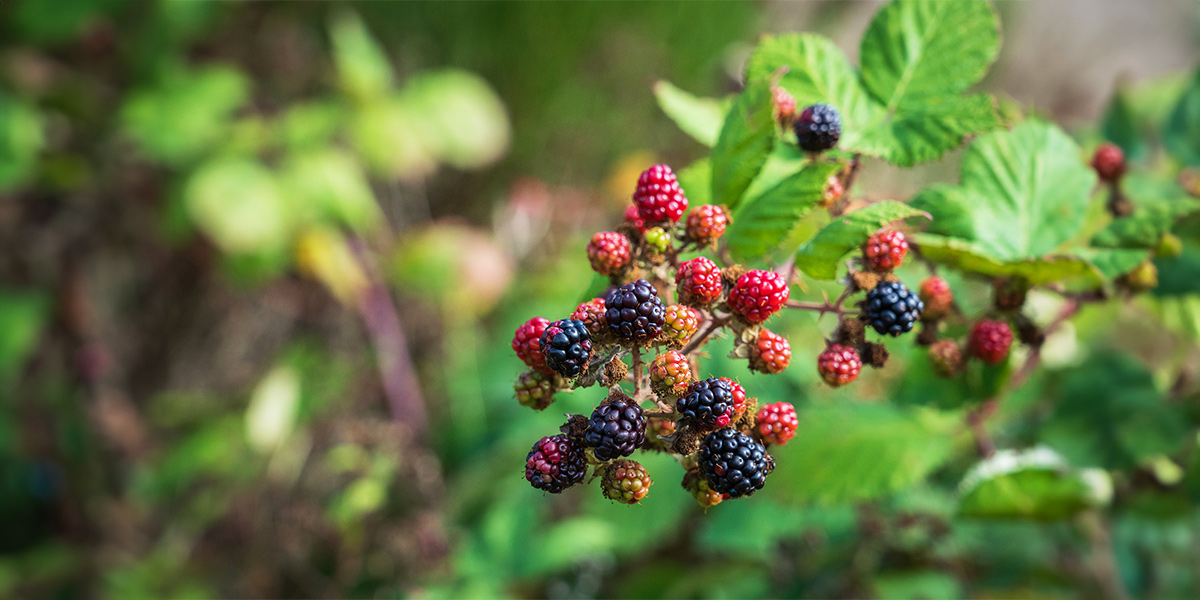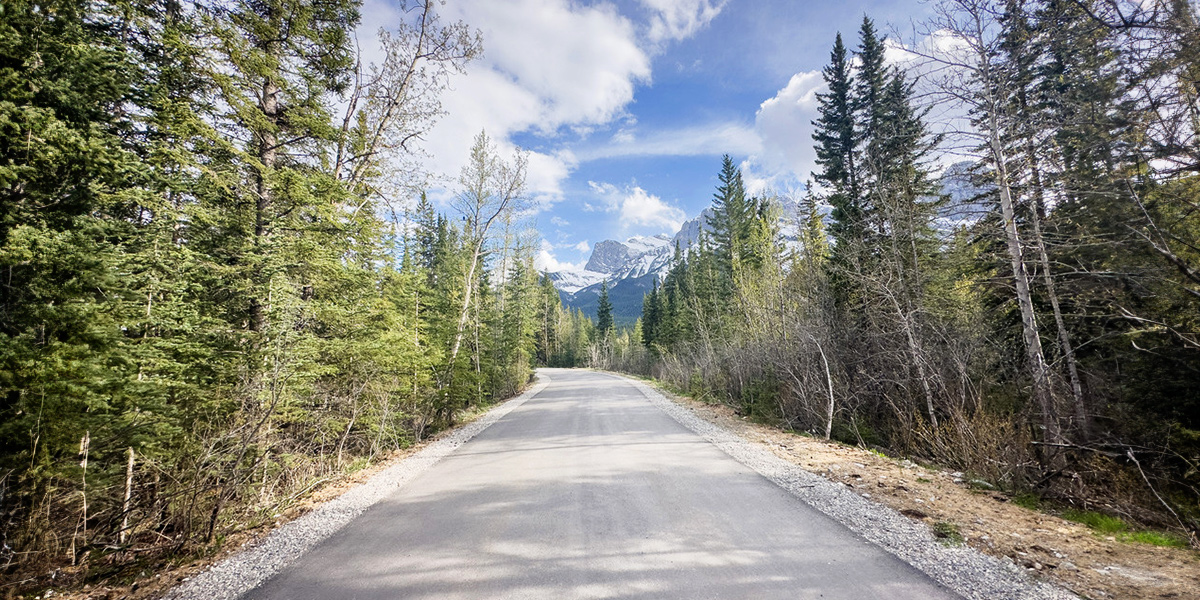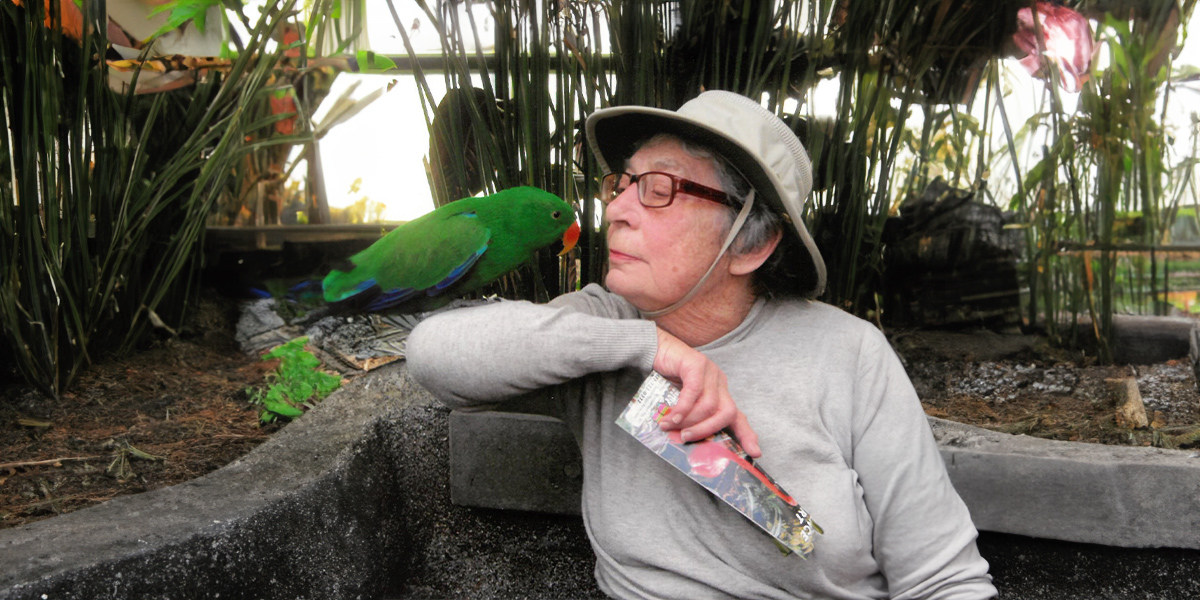Dave’s Trans Canada Trail: Beyond the Horizon
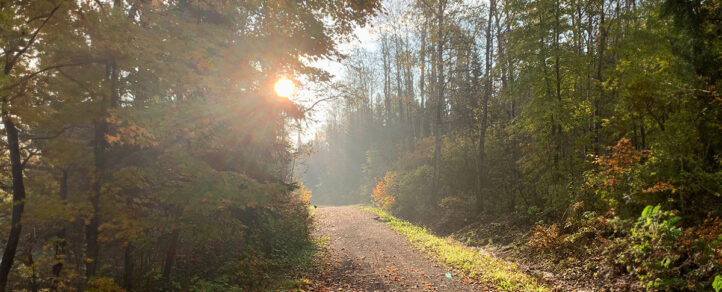
Written by Dave Gunther
My adventures on the Trans Canada Trail as a neurodivergent hiker
My name is Dave Gunther, and I love hiking the Trans Canada Trail. This is the world’s longest network of multi-use recreational trails, stretching over 28,000 kilometres across the country. It offers a variety of landscapes, activities and challenges for people of all ages and abilities.
I have ADHD and autism, which means that I sometimes struggle with attention, impulsivity, communication and social interaction. I also have sensory issues, which make me sensitive to noise, light, touch and smell. These conditions can make everyday life stressful and overwhelming for me. When I’m on the Trail, however, I feel free and happy.
The calming effects of nature
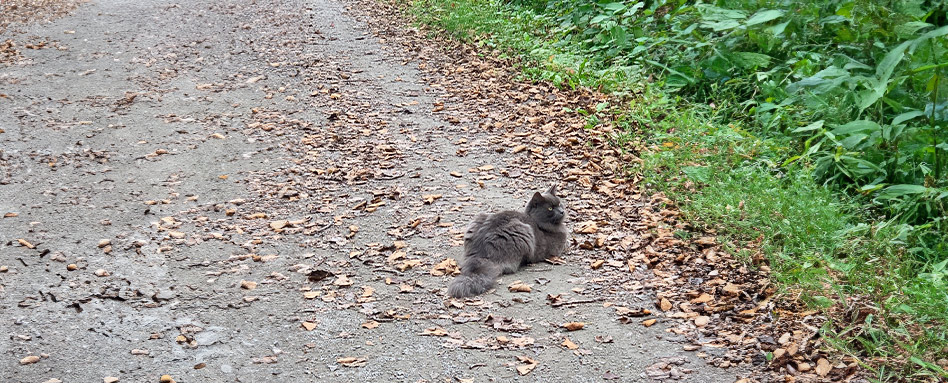
Hiking helps me cope with my symptoms in many ways. It gives me a chance to be out in nature, which has a calming effect on my mind and body. Nature provides me with a rich sensory input that is not too stimulating or distracting. I enjoy the sights, sounds, smells and textures of this pure world.
Being in nature also helps me regulate my mood and energy levels. It boosts my serotonin, or feel-good hormone, and it reduces my cortisol, which simply means less stress. Another benefit is that it allows me to exercise both my body and my brain.
Exercising body and mind

Hiking is a great form of exercise that works on different muscles and skills. It improves cardiovascular health, strengthens the bones and joints, and enhances balance and agility. It also challenges my cognitive abilities and requires a combo of planning, problem-solving and decision-making. I have to set out my route, pack my gear, follow the signs, navigate the terrain and deal with all kinds of unexpected situations.
Building community along the Trail
Hiking is also a great way to improve my social interactions, as it helps me connect with other people who share the same passion. Social interaction can be an issue for people on the spectrum, as we might experience trouble understanding social cues, expressing emotions or maintaining conversations.
When I’m hiking, I meet people who are friendly, supportive and respectful. I’m not judged for being different, and nobody expects me to act a certain way. I’m appreciated for who I am and what I can do.
An abundance of kindness
Along the Trail, I encountered many generous souls who welcomed me into their homes. They shared a hot dish with me, offered me packed snacks, a refreshing shower, a clean set of clothes or a cozy place to rest.
I was amazed by the abundance and kindness that the Trail brought into my life. I felt a deep connection with people from different walks of life. I was able to share my experiences with them, sparking their curiosity and creativity. Being by myself day after day helps me reorganize my thoughts about that particular aspect of my neurodivergence.
This challenge has been life-changing for me. I’ve been expanding my social network. My sense of accomplishment, adventure and joy has taken a major jump. And I am proud of myself for taking on this challenge and achieving my daily goals. I feel so grateful for the opportunity to explore this beautiful country and learn more about myself and others, and I am looking forward to continuing my journey and discovering new places and experiences.
For those who want to experience the benefits of hiking or want to take up a similar challenge, I have some tips and tricks that I have learned during my extended periods out in nature.
Dave’s top 7 tips for Trans Canada Trail adventuring

Plan ahead and prepare for your hike. Research the trail, the weather, the terrain and the facilities. Make a checklist of what you need to bring, such as water, snacks, sunscreen, medication, map and so on. Pack your backpack in advance and double-check everything before you leave.
Set realistic and flexible goals for yourself. Don’t push yourself too hard or too fast. Find a pace that works for you and take breaks when you need them. Adjust your expectations according to your energy level, mood and interest. Celebrate your achievements, no matter how small.
Use strategies to cope with sensory issues and distractions. If you are sensitive to noise, wear earplugs or headphones with soothing music. If you are easily distracted by sights or sounds, wear a hat or sunglasses to limit your visual field. If you need stimulation, bring a fidget toy or chew gum.
Find a hiking buddy or join a group. Hiking with someone else can make the experience more enjoyable and safer. You can share your thoughts, feelings and observations with them. You can also learn from their skills and knowledge. A hiking buddy or group can also provide support and encouragement when you face challenges.
Enjoy the benefits of nature. Being out in nature can help you relax, focus and improve your mood. Nature can also stimulate your creativity and curiosity. You can explore new things, learn new facts and discover new perspectives.
Follow trail etiquette. Respect nature and the people you encounter on the trail. Stay on the marked paths to avoid damaging the vegetation or disturbing the wildlife. Leave no trace of your presence by disposing of your waste properly or carrying it out with you. Be courteous to other hikers by yielding the right of way, greeting them and keeping a safe distance. Wear your best smile all the time.
Have fun and enjoy the moment. Hiking is not a race or a competition. It is a way to connect with yourself, nature and others. Don’t worry about how fast or how far you can go. Focus on the journey, not the destination. Appreciate the beauty and diversity of nature. Be mindful of your surroundings and your feelings. Take pictures, but don’t forget to look with your eyes. Smile, laugh, sing, dance and most importantly do whatever makes you happy.
Fun facts from Dave’s adventures along the Trans Canada Trail
On birdwatching: I like birdwatching, the sound of the river or the smell of the earth after it’s been raining. They even have a word for this: petrichor (derived from Ancient Greek, meaning “the blood of the gods” and “stone”).
On building a pebble collection: Stones are among my favourites, too. I plan to collect one or two beautiful little pocket-sized pebbles from every province and territory of this country as a souvenir for when I grow older.
On potatoes: I was in New Brunswick, and I’ve learned so much about potatoes just by talking with people. Hiking stimulates my creativity and imagination, and when there is no one around, I like to make up stories and songs about the places I visit and the things I see and there’s a lot of potato songs now.
Dave Gunther is a Canadian neurodivergent backpacker who loves to travel the world and explore new places, cultures and people. Travelling has helped him cope with his symptoms in many ways, and he encourages others to embrace their differences and find ways to make travel work for them.
Follow his adventures at dehors.store


